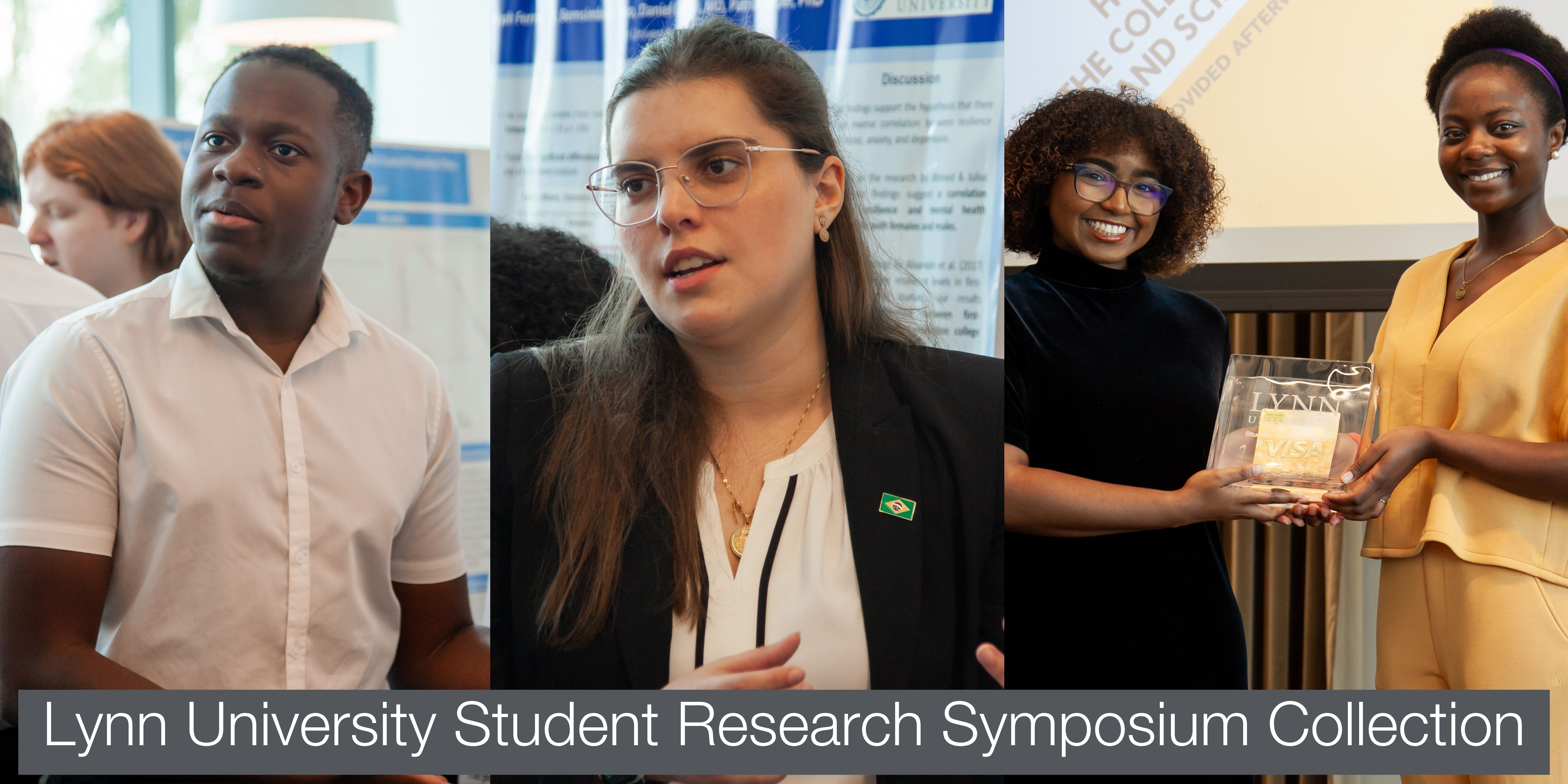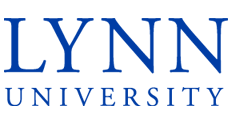
Student Research Award
The Student Research Award is given yearly to the students with best academic research paper (or video) of original research with a clear, arguable thesis that is well-supported by scholarly sources. Other criteria:
- There is no required length or topic for the paper award; research proposals and creative writing are not accepted.
- Film submissions that represent substantial academic research with a clear thesis and scholarly sources are accepted.
- All applications must include a faculty sponsor. The faculty sponsors are intended to guide students through this event, helping in the revising of papers before submission. Faculty sponsors should review the appropriate rubric with students before submission.
Started in 2016 by the Lynn Library Staff, and formerly known as the Library Student Research Award, in 2019 the award became part of the Lynn Student Symposium and was renamed the Student Research Award.
From 2016-2018 - and then again in 2022 due to COVID - winners were celebrated at the Library's annual Published Faculty Reception (now known as the Academic and Creative Excellence Reception). Winners are now celebrated at the Lynn Student Research Symposium.
Submissions from 2023
Collision at Los Rodeos, Tenerife, Luis Casassa, 2023
Felon Disenfranchisement: An Attack on Democracy in the United States, Katie Rodrigues, 2023
Precursor of Paganini: The Solo Violin Caprices of Pietro Antonio Locatelli, Amelia Dixon, 2023
Wim Wenders is an Auteur, Diane Dohler, 2023
Submissions from 2022
A Study on Anti-Maskers, Cole Kessler and Lauren Toy, 2022
Fake COVID-19 Test Documentation, Nicole Anglarill and Giovanni Guaschino, 2022
Gender Disparities in COVID Deaths, Lisamarie Bennett, 2022
Modern Seaplane Air Carrier Operations, Richard Bonnell (Brian), 2022
The Parasitic Influence of Class Inequality in South Korean Cinema, Jiří Balcar, 2022
The Racial Incarceration Problem in the United States, JonPaul Palmisano, 2022
Submissions from 2021
“A Local! A Monster!”: Harmful Tropes of Indigeneity in Thomas Adès’s The Tempest, Rosie Rogers, 2021
Beethoven's Humor in Piano Sonata 16, Op. 31 no. 1, Janna Peña, 2021
Ethical Decisions in Biased Medicine, Jayden N. Reece, 2021
Harnessing Liberia’s Potential Demographic Dividend: The Education that Works, Wainright Acquoi, Brima Bangura, Lima Sarhadi, and Morgan Wack, 2021
Horror and Society, Heather Fiveson, 2021
Unchained, Mia Tippenhauer, 2021
Submissions from 2020
The Pianist versus the Smart Piano, Janna Peña, 2021
Submissions from 2019
Depression Across Cultures, Carlota Garcia, 2019
Submissions from 2018
Airport Innovations and Innovators, Jennifer Torres, 2018
Attachment in Infancy and its Effects in Adulthood, Kristina Petkovic, 2018
Exploring Nuri Bilge Ceylan’s Style Via the Auteur, Balca Elif Sagmanli, 2018
Take A Stand: Social (In)justice - The Most Challenged Learners and the Newest Educators: An Appropriate Combination?, Josh Prieur, 2018
The Lottery of Life: Migration Crisis in Europe, Ida Langer, 2018
Submissions from 2017
Can Multilingualism and Positive Visualizations Influence Resilience?, Grisel Lopez-Escobar, 2017
Cosmopolitanism as Political Theory, Martina Guglielmone, 2017
Fundamental Components of Life: The Science of Animal Rights, Bailey-Michelle Collins, 2017
The Ethics Behind Cosmetic Procedures: The Strive for Aesthetics, Francais Olexa, 2017
The Left- and Right-Brain Myth, Jaimee Marcus, 2017
Submissions from 2016
A Moral Education, Kristen Van Voorhis, 2016
Strong Phonics Base to Build Better Readers, Talia Williams, 2016


